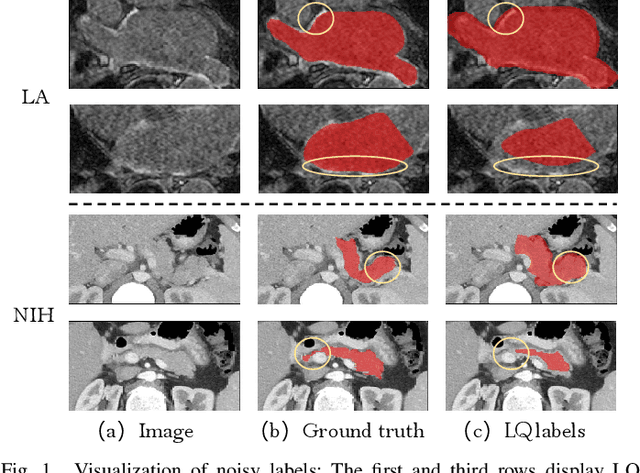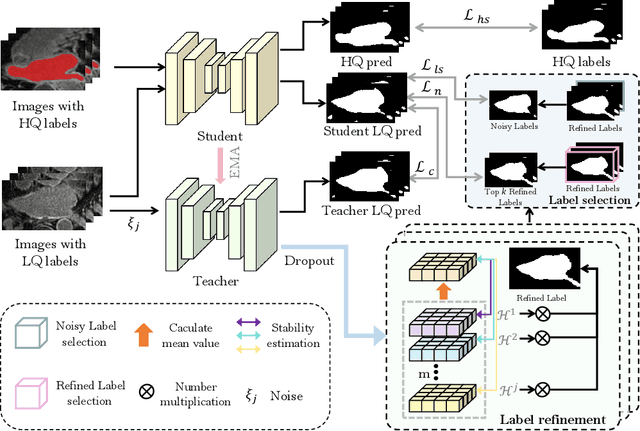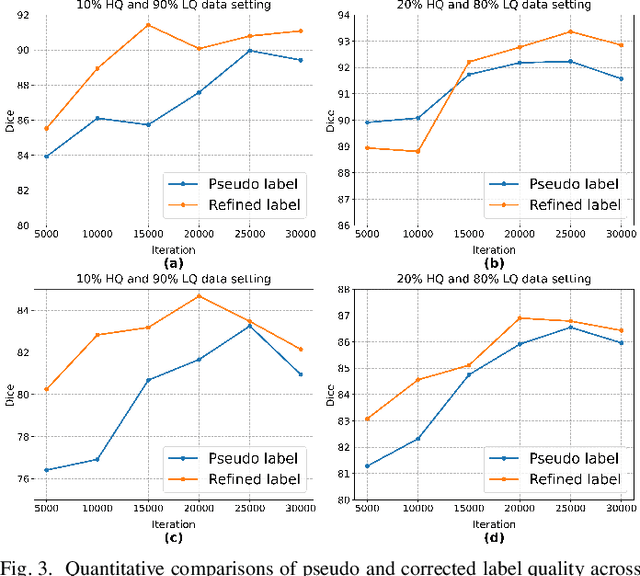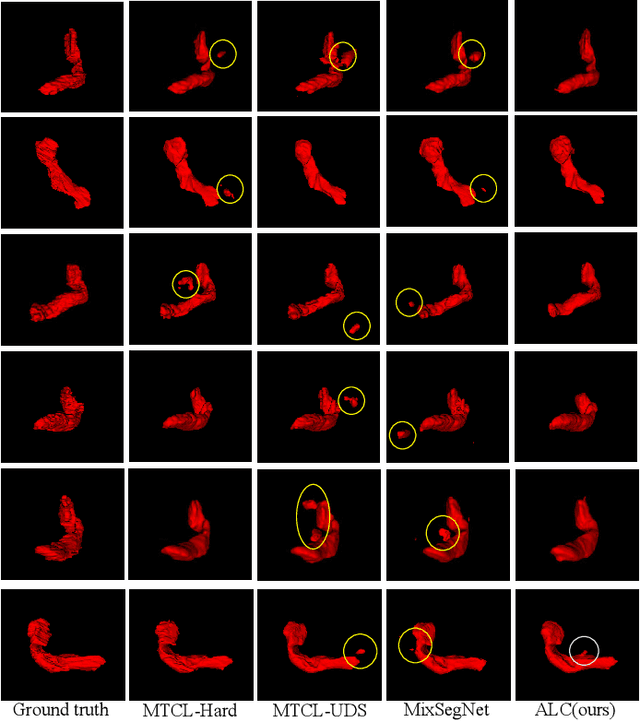Adaptive Label Correction for Robust Medical Image Segmentation with Noisy Labels
Paper and Code
Mar 15, 2025



Deep learning has shown remarkable success in medical image analysis, but its reliance on large volumes of high-quality labeled data limits its applicability. While noisy labeled data are easier to obtain, directly incorporating them into training can degrade model performance. To address this challenge, we propose a Mean Teacher-based Adaptive Label Correction (ALC) self-ensemble framework for robust medical image segmentation with noisy labels. The framework leverages the Mean Teacher architecture to ensure consistent learning under noise perturbations. It includes an adaptive label refinement mechanism that dynamically captures and weights differences across multiple disturbance versions to enhance the quality of noisy labels. Additionally, a sample-level uncertainty-based label selection algorithm is introduced to prioritize high-confidence samples for network updates, mitigating the impact of noisy annotations. Consistency learning is integrated to align the predictions of the student and teacher networks, further enhancing model robustness. Extensive experiments on two public datasets demonstrate the effectiveness of the proposed framework, showing significant improvements in segmentation performance. By fully exploiting the strengths of the Mean Teacher structure, the ALC framework effectively processes noisy labels, adapts to challenging scenarios, and achieves competitive results compared to state-of-the-art methods.
 Add to Chrome
Add to Chrome Add to Firefox
Add to Firefox Add to Edge
Add to Edge